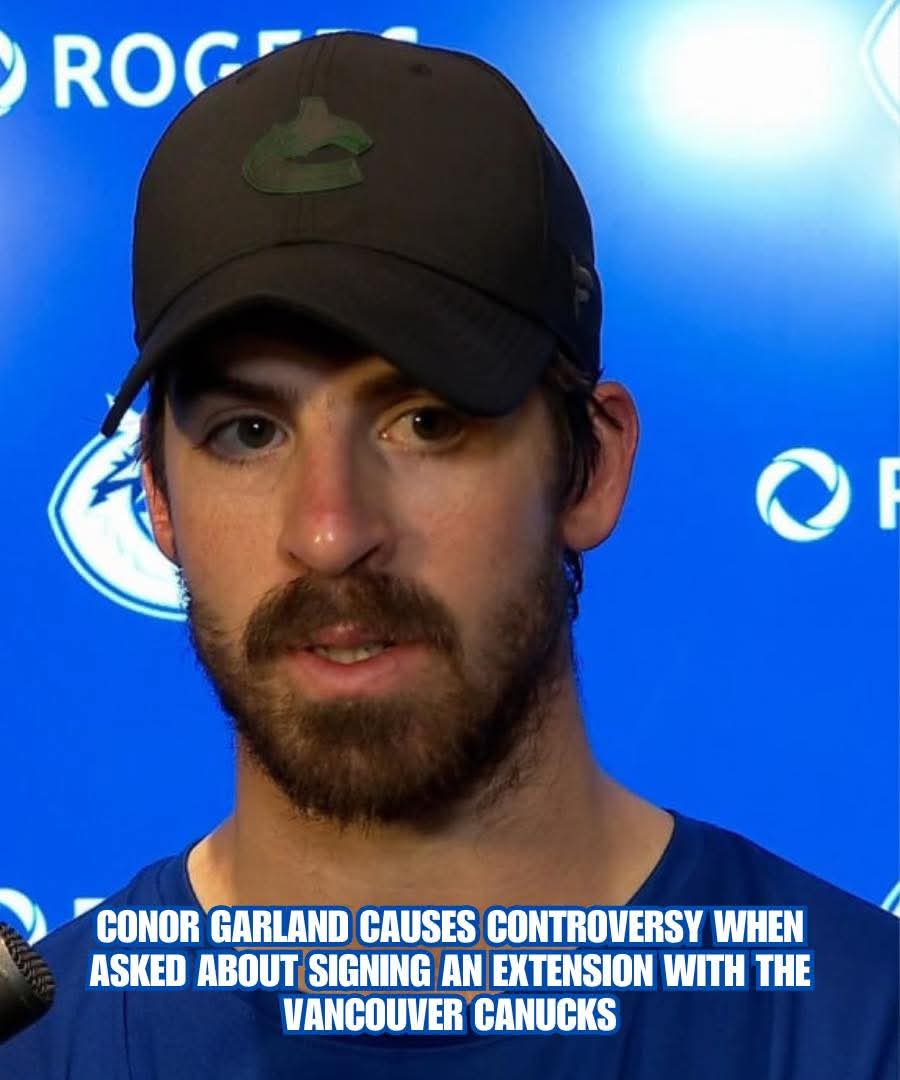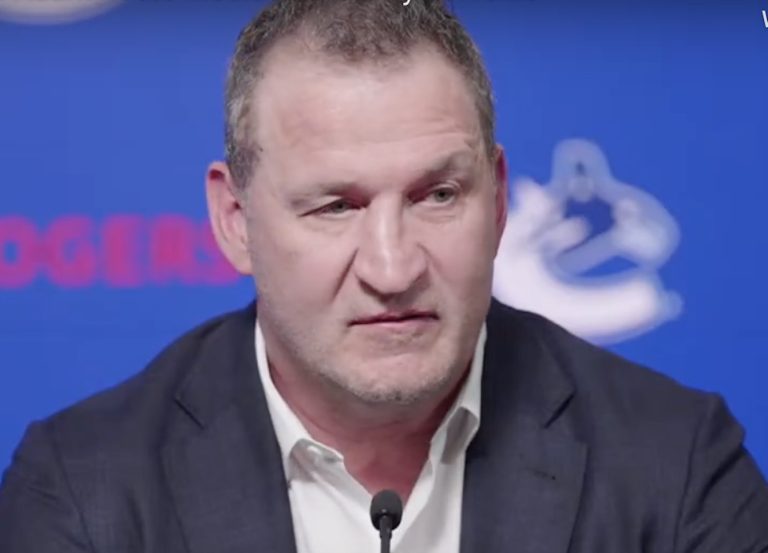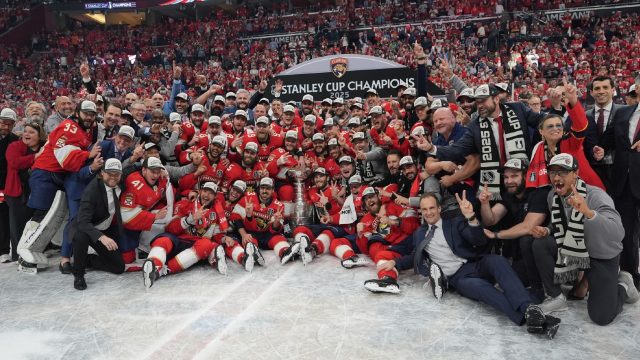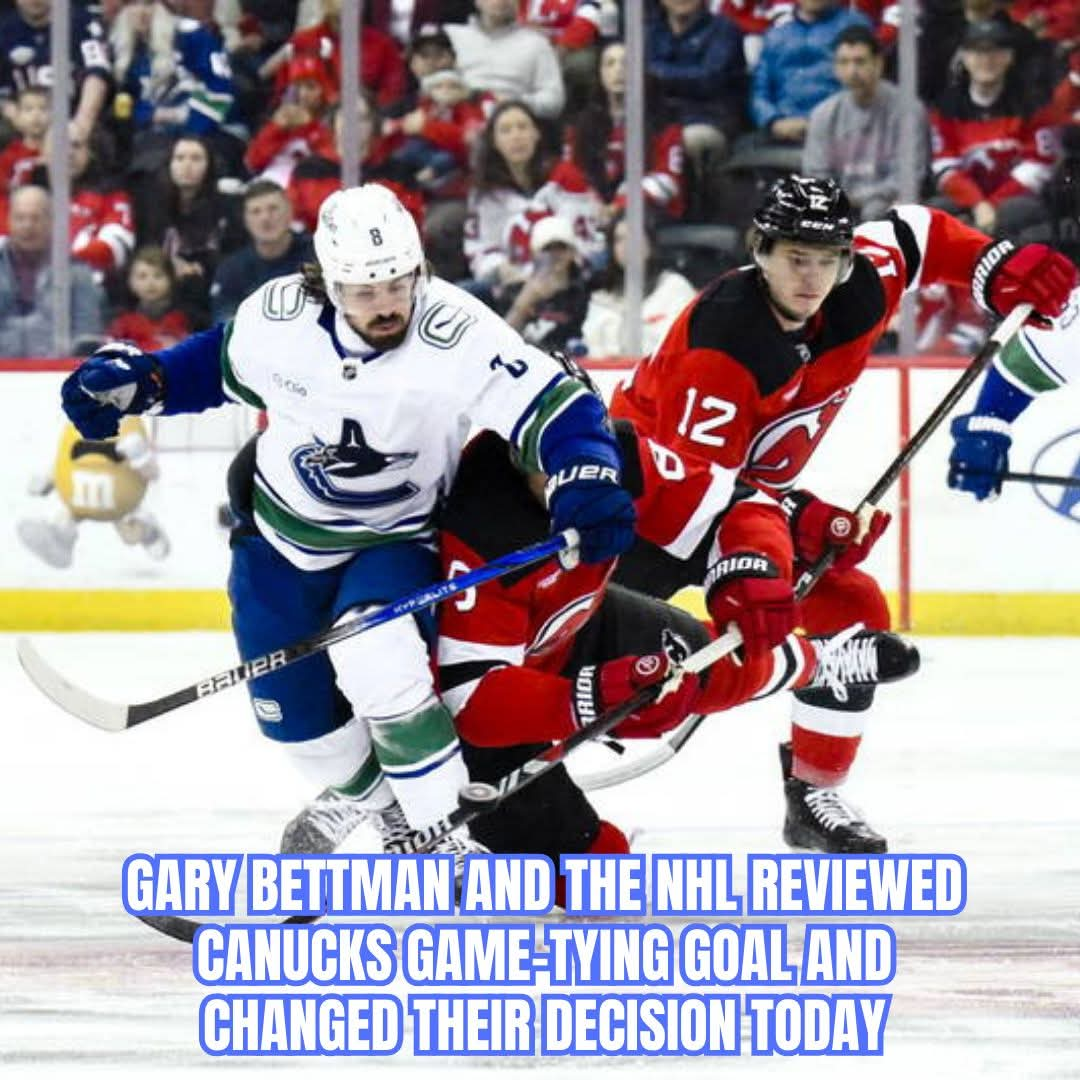Conor Garland Sparks Debate With Comments on Possible Canucks Extension
As the Vancouver Canucks head into what promises to be a pivotal offseason, one of their veteran forwards, Conor Garland, has ignited fresh debate and uncertainty regarding his future with the organization. With major decisions looming for the team—especially surrounding Brock Boeser’s potential departure and Quinn Hughes’ long-term outlook—Garland’s remarks in a recent interview have only added to the speculation clouding the franchise.
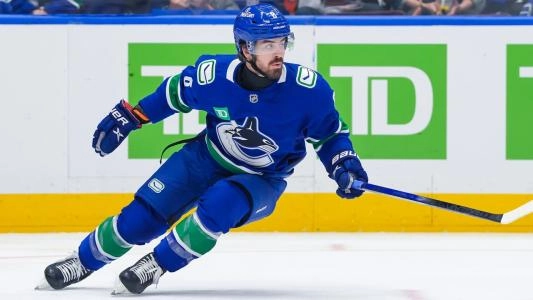
Garland, 29, has spent the last four seasons with the Canucks after arriving via trade from the Arizona Coyotes and signing a five-year, $24.75 million contract. Over his time in Vancouver, he’s proven to be a reliable offensive contributor. Most recently, he wrapped up the 2024–25 regular season with 19 goals and 50 points—his second 50-point campaign in Vancouver. Still, it’s his recent public comments—not his performance on the ice—that have caused a stir among fans and media.
In an offseason where Vancouver is already grappling with several high-stakes roster decisions, Garland’s future had remained under the radar—until now. When asked during a media appearance about the possibility of signing an extension with the Canucks, Garland offered a vague and noticeably noncommittal response.
“Well, I mean, I love Vancouver. It’s a great city,” Garland said. “I warmed up to it this season, you know—winning helps.”
While those words might initially sound reassuring, it was what he said next that sparked a flurry of reactions. Rather than expressing a clear desire to remain in Vancouver long-term, Garland distanced himself from any commitment, citing his agent as the one responsible for handling those decisions.
“I’ve got a great agent. He handles that stuff. I just play hockey, and that’s what I love doing. That’s how I look at it—that’s up to him.”
In the world of professional hockey, especially in a passionate Canadian market like Vancouver, players are often asked about their long-term intentions. Even if a player doesn’t yet have a new deal in place, there’s typically a standard script: express enthusiasm for staying, praise the organization, and reassure the fans. Garland’s choice to deflect the question, rather than lean into that narrative, has opened the door for speculation—and fans didn’t waste time picking up on it.
Almost immediately, social media was abuzz with reactions. Many fans interpreted Garland’s noncommittal tone as a sign he’s already considering a move once his contract expires after the 2025–26 season. Some questioned his loyalty to the team, while others speculated this might be part of a broader trend of dissatisfaction among core players in Vancouver.
Garland’s comments come at a particularly sensitive time. The Canucks are still navigating what their identity will look like moving forward. With Brock Boeser expected to be on the move, the team has already braced itself for major changes. Additionally, defenseman Quinn Hughes, arguably the cornerstone of the franchise, has had his future quietly debated behind the scenes. While there’s no clear connection between Garland’s situation and Hughes’ status, fans can’t help but worry that the departure or uncertainty of one player might influence others.
In a season that saw the Canucks re-establish themselves as a competitive force, thanks in part to strong performances from Garland and others, team chemistry and unity were believed to be among the key reasons for their success. Garland’s 50-point campaign underscored his value as a reliable middle-six forward, and his ability to contribute offensively while also playing a gritty, high-energy style made him a fan favorite. Yet, this latest episode has cast a shadow over that goodwill.
What makes this situation especially delicate is how it reflects broader organizational uncertainty. The Canucks have long been trying to build a consistent, competitive core, and just when they seem to be finding their stride, new question marks emerge. If Garland is indeed eyeing the exit door when his current contract wraps up, the Canucks may need to start preparing now—whether that means exploring trade options or assessing internal replacements.
Furthermore, while Garland’s refusal to commit to an extension isn’t an outright declaration of departure, the optics don’t help. In an era where fans crave transparency and loyalty, even a vaguely worded answer can cause ripples across the franchise. Some analysts have pointed out that Garland may simply be trying to avoid distractions and leave contract negotiations to his representation—a common approach among athletes. However, others argue that a clearer, more enthusiastic response would have gone a long way in easing concerns and reinforcing his bond with the city.
At the very least, Garland’s comments have shifted attention to an area of the roster that hadn’t previously been considered a potential source of instability. His future, once taken for granted by many fans, is now a topic of open debate. While the Canucks still control his contract for another season, how the team handles Garland moving forward could send a strong message—both to the player himself and to others in the locker room—about the franchise’s long-term vision and loyalty to its core contributors.
The road ahead for Vancouver’s front office is riddled with difficult choices. If they want to remain competitive, they’ll need to be proactive, not reactive. Whether that means engaging Garland in serious extension talks sooner rather than later, or potentially exploring trade value to maximize return before he hits free agency, remains to be seen.
For now, the Canucks and their fans are left with more questions than answers. And while the controversy surrounding Conor Garland may not yet qualify as a crisis, it has certainly added a new layer of complexity to an already crucial offseason.
